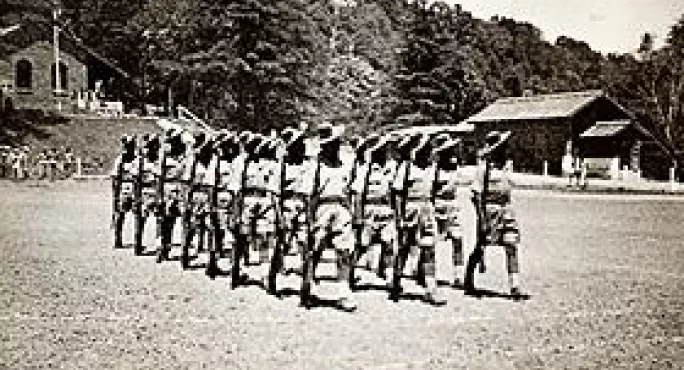After being recruited from Nepalese villages as teenagers and serving the British Army for decades, they won the right to live in the UK after Joanna Lumley lent her star power to their campaign.
Now Gurkhas are to be helped to integrate into British life through a new project providing English lessons to them and their families, run by the adult education body Niace. Since the right to settle in the UK was granted in 2004, then extended to all ex-Gurkhas last year, their numbers have been growing.
Chris Taylor, programme director for English for speakers of other languages at Niace, said: “When they come out of the army, they still have quite a significant working life ahead of them. And the even bigger issue is for their young wives who come over with them, who may be quite isolated unless they access English language training straight away.”
With up to 1,000 ex-soldiers and family members on its doorstep, Greenwich Community College is one of the providers working with Niace to provide English lessons.
The project, funded by the European Union for three years, is aimed at Gurkha families all over the country, and also involves Barnet College in north London and Coleg Powys in Wales.
As well as providing English classes with creches in conjunction with Gurkha community groups, the project includes research to measure the cost-effectiveness of early intervention, and guidance to help families get further qualifications and employment.
Laxman Sah, chairman of a Greenwich community organisation working with Gurkhas called Community Empowerment and Support Initiatives, said that although soldiers are taught English in the army, many still had language difficulties when they leave.
“Most Gurkhas are first recruited to the British Army when they are about 16 or 17. Many have not been to school or had any formal education. That’s one barrier for them,” he said. “They are often in a group where they speak their own language, so when they leave, they face problems.”
He said they also face a culture shock after decades of military service, and on arriving in the UK.
“Life here is very, very different to Nepal. There it is cheap, they have their own house, people to look after them and support them,” Mr Sah said. “Here, they can feel lonely and isolated. Their children are at school or at work and the parents are left alone in the house. There are lots of difficulties in getting them integrated.”
Gerry Armstrong, divisional secretary at the Soldiers, Sailors, Airmen and Families Association, said some Gurkhas who had no experience of English were now taking up the right to move to Britain.
The Brigade of Gurkhas, which selects around 230 a year from 28,000 applicants, was based in Hong Kong until 1997. Those who had served with the brigade before its move to the UK had no right of residence until the campaign forced a change of heart last year. But that victory has brought new challenges.
Mr Armstrong said: “They are much older, have major health and social support needs and will find integration very difficult unless they are able to speak some everyday English.”



